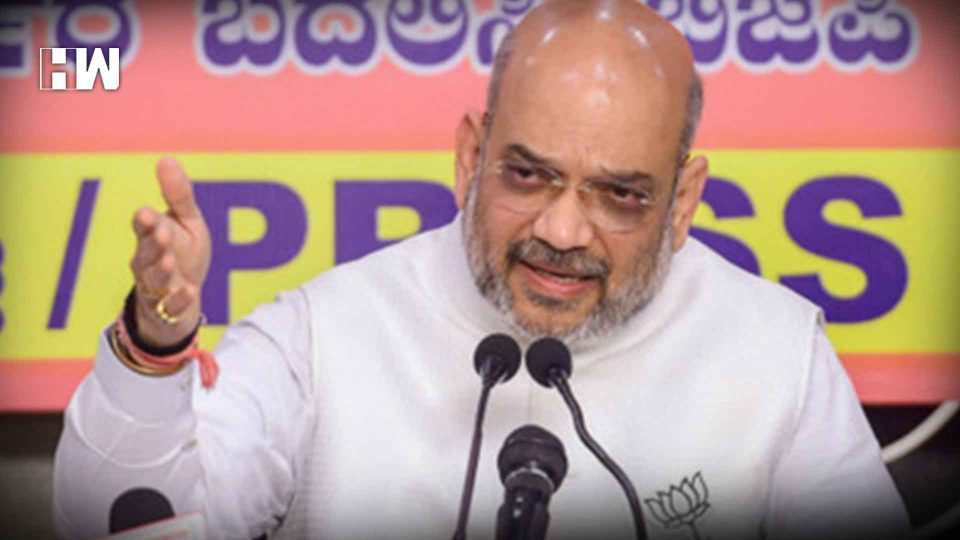A district cooperative bank has got the highest deposits among such banks of old Rs 500 and Rs 1,000 notes that were abruptly demonetised on 8 November 2016, according to RTI replies received by a Mumbai activist.
The Ahmedabad District Cooperative Bank (ADCB) got deposits of Rs 745.59 crore of the spiked notes after Prime Minister Narendra Modi announced demonetisation. All the district cooperative banks were banned from accepting deposits of the banned currency notes from the public after 14 November 2016, on fears that black money would be laundered through this route.
According to the bank’s website, Amit Shah still continues to be a director with the bank and has been in that position for several years. He was also the bank’s chairman in 2000. ADCB’s total deposit on March 31, 2017, was Rs 5,050 crore.
Incidentally, the figures of Ahmedabad-Rajkot DCCBs are much higher than the top Gujarat State Cooperative Bank Ltd, which got deposits of a mere Rs 1.11 crore.
“The number of deposits made in the State Cooperative Banks (SCBs) and District Central Cooperative Banks (DCCBs) — revealed under RTI for the first time since demonetisation- are astounding,” Manoranjan S. Roy, the RTI activist who made the effort to get the information, told IANS.
Through the RTI queries it has come to light that only seven public sector banks (PSBs), 32 SCBs, 370 DCCBs, and a little over three-dozen post offices across India collected Rs 7.91 lakh crore- more than half (52 percent) of the total amount of old currencies of Rs 15.28 lakh crore deposited with the RBI.
The break-up of Rs 7.91 lakh crore mentioned in the RTI replies shows that the value of spiked notes deposited with the RBI by the seven PSBs was Rs 7.57 lakh crore, the 32 SCBs gave in Rs 6,407 crore and the 370 DCCBs brought in Rs 22,271 crore. Old notes deposited by 39 post offices were worth Rs 4,408 crore.
Information from all the SCBs and DCCBs across India were received through the replies. The seven PSBs account for around 29,000 branches- out of the over 92,500 branches of the 21 PSBs in India- according to data published by the RBI. The 14 other PSBs declined to give information on one ground or the other. There are around 155,000 post offices in the country.
Fifteen months after demonetisation, the government had announced that Rs 15.28 Lakh crore- or 99 per cent of the cancelled notes worth Rs 15.44 lakh crore- were returned to the RBI treasury.
“At this rate, serious questions arise about the actual collection of spiked notes through the remaining 14 mega-PSBs, besides rural-urban banks, private banks (like ICICI, HDFC and others), local cooperatives, Jankalyan Banks and credit cooperatives and other entities with banking licenses, the figures of which are not made available under RTI,” he said.
After the uproar that came from BJP allies, the government also opened a small window in mid-2017, during the presidential elections, allowing the 32 SCBs and 370 DCCBs- largely owned, managed or controlled by politicians of various parties to deposit their stocks of the spiked notes with the RBI. The move was strongly criticised by the Congress and other Opposition parties.
Among the SCBs, the Maharashtra State Cooperative Bank topped the list of depositors with Rs 1,128 crore from 55 branches and the smallest share of Rs 5.94 crore came from just five branches of Jharkhand State Cooperative Bank, according to the replies.
Other than that Andaman & Nicobar State Cooperative Bank’s share was Rs 85.76 crore.
As an independent media platform, we do not take advertisements from governments and corporate houses. It is you, our readers, who have supported us on our journey to do honest and unbiased journalism. Please contribute, so that we can continue to do the same in future.

